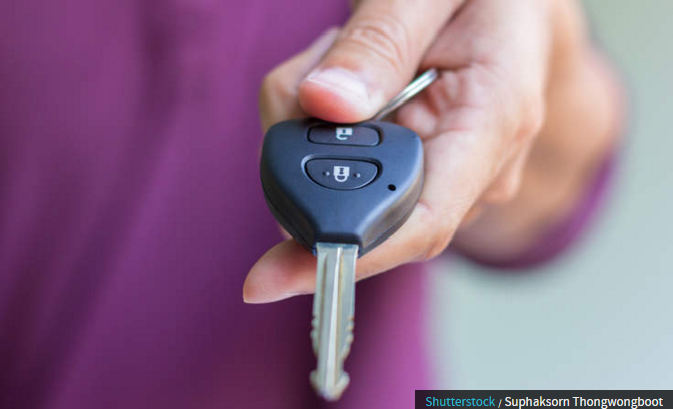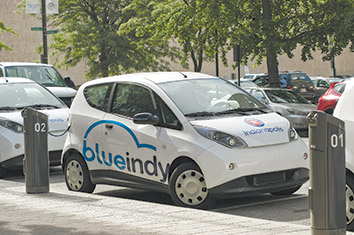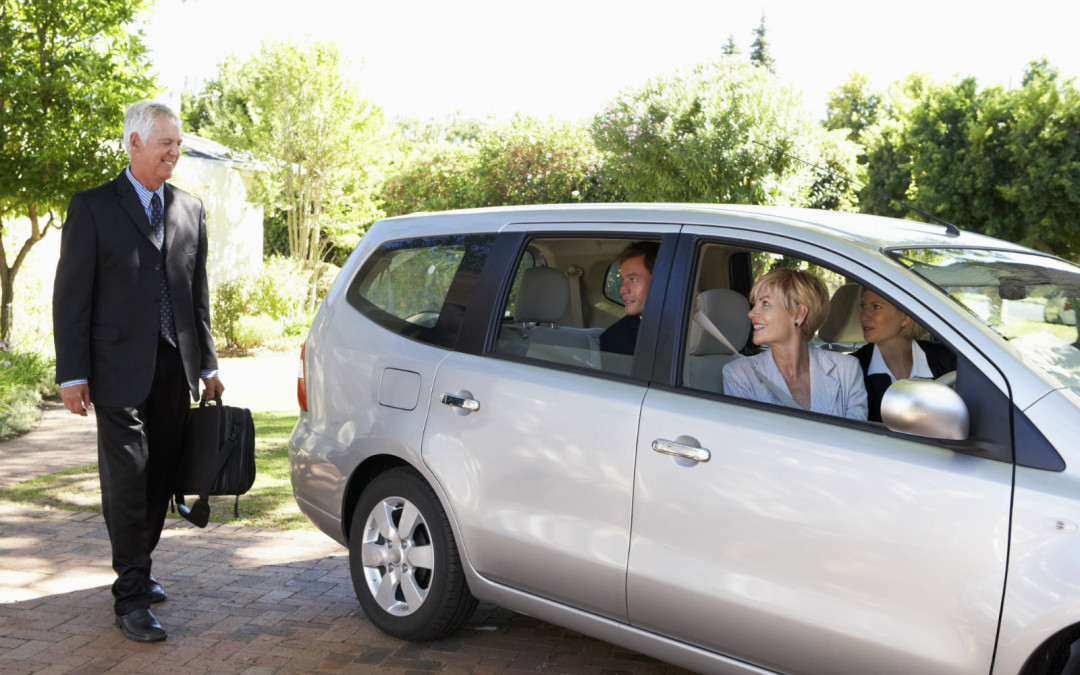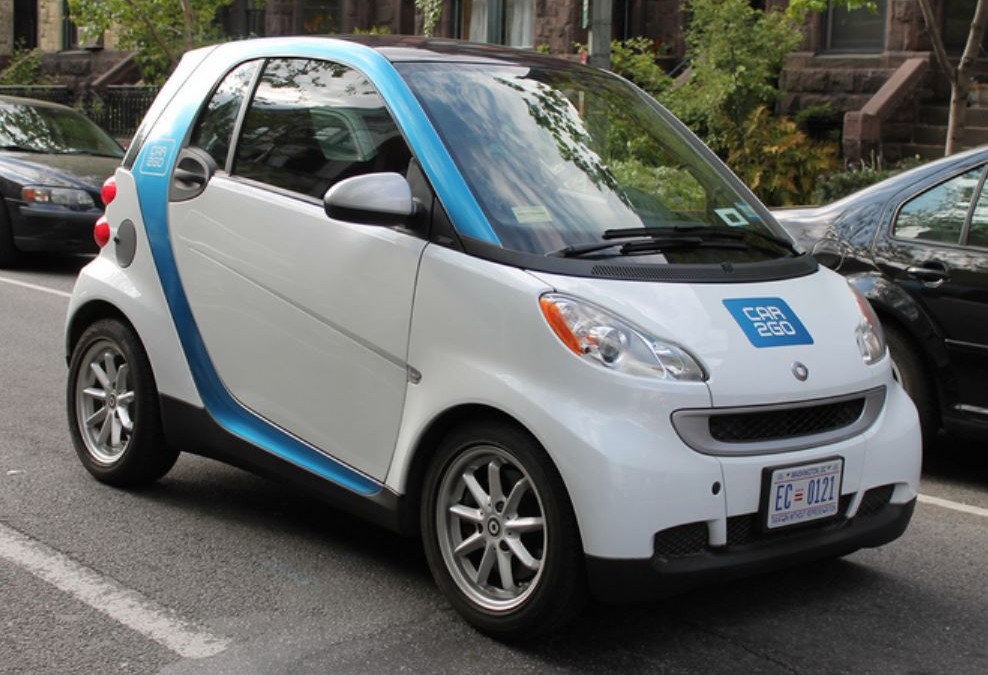
by Innovative Mobility Research | Oct 23, 2015 |
Lauren Hepler Wednesday, October 21, 2015 – 2:30am Owning a car in Manhattan has traditionally ranked pretty far up the list of pricey personal indulgences (that is, aside from opting to live in New York City in the first place). But with automakers looking to hang onto market share amid a surge in competition from shared car services, a new category of faux car ownership — on-demand shared cars located inside your own building — could change the economics of driving in busy urban areas. General Motors is one company pushing into this space through a deal with New York real estate firm Stonehenge Partners, where residents of the 479-unit Ritz Plaza apartment building can purchase access to a fleet of shared SUVs parked in their garage. To read the rest of the article, click...
by Innovative Mobility Research | Sep 22, 2015 |
Authors: Susan Shaheen, Elliot Martin, Apaar Bansal Date Published: September 22, 2015 Abstract: The California Zero-Emission Vehicle (ZEV) Mandate, adopted in 1990, was aimed at increasing the sale and dissemination of low- or zero-emission vehicles throughout the California auto market. ZEVs include plug-in hybrid vehicles (PHVs) and all-electric vehicles (EVs). In an attempt to accelerate the exposure of ZEVs in the general population, in 2001, additional credits were allotted to automakers in return for placing ZEVs into transportation networks, such as carsharing fleets. This policy is set to end in 2018. This white paper presents the results of a study that evaluated the impacts of ZEV exposure on United States carsharing users. Two surveys were administered to members of several carsharing organizations that use PHVs or EVs in their fleet including: car2go, DriveNow, eGo, and Zipcar. One was a control group survey, which was comprised of 1,742 respondents, and the other was an experimental group survey, covering 1,920 respondents. The results support that exposure to PHVs or EVs through carsharing has influenced customer ZEV perceptions to be more positive and has commensurately increased the propensity for an individual to buy a ZEV. Furthermore, the data suggest that certain socio-demographic groups, such as younger people and women, are more interested in purchasing these vehicles after using them in carsharing....

by Innovative Mobility Research | Sep 1, 2015 |
August 29, 2015 by Hayleigh Colombo BlueIndy plans to charge past its skeptics as its electric car-sharing program launches in Indianapolis Sept. 2, leaving behind the political consternation about whether Mayor Greg Ballard went rogue in green-lighting the program in the first place.Forget politics. Bolloré Group, the French company behind BlueIndy, now faces an even tougher test as it sets out to prove it chose the right city for the American debut of its service, which charges users a small fee to drive one of its electric cars.The company’s first 25 stations and 50 cars—it eventually plans 200 stations and 500 cars—are scattered downtown and in popular destinations like Broad Ripple and Meridian-Kessler. To read more, click...

by Innovative Mobility Research | Sep 1, 2015 |
18 Aug 2015 by Susan Shaheen Corporate car sharing enables commercial businesses to reduce or eliminate private vehicle fleets by providing their employees with access to shared or “exclusive-use” car sharing vehicles. What benefits do these services have on participating businesses? What are the behavioral impacts of corporate car sharing on employees that use these services? Corporate car sharing (or business car sharing) is a form of carsharing that allows employees of a business to access car sharing vehicles and sign up through their employer. This is an expanding sector of the overall car sharing market. A 2010 study showed that 32 percent of international carsharing experts reported the business market to be the most profitable – a 12 percentage point increase from four years earlier. Businesses of varying sizes find car sharing services useful for different reasons. Small businesses may use car sharing to provide their employees with added mobility options at work, while larger companies may use it to replace a company vehicle fleet and simplify related operations. Companies employ car sharing as a transportation demand management and parking management tool, reducing the need for employees to drive to work by providing at-work mobility. This can reduce an employee’s reliance on a private vehicle for commuting, while still retaining on-demand mobility for work-related travel and meetings. Furthermore, corporate carsharing can reduce the costs of supplying fleet vehicles or rental cars by employers. To read more, click...

by Innovative Mobility Research | Aug 14, 2015 |
This afternoon, Council Member Mark Levine will introduce a bill [PDF 1, 2] requiring DOT to give car-share companies designated on-street parking spaces, potentially for a price. Guaranteed parking would boost car sharing, Levine says, and reduce car ownership. Trouble is, there’s not much data to say whether or not car-share in New York is reducing vehicle ownership or just encouraging more driving. Levine introduced the bill days after Car2Go announced an expansion into western Queens. The company, owned by auto giant Daimler, offers a fleet of 450 Smart cars in a 36 square-mile zone covering the western half of Brooklyn, from Greenpoint to Coney Island. Starting August 29, the company is adding another 100 vehicles and eight square miles in Long Island City, Astoria, Woodside, and Sunnyside. Customers of the point-to-point service can start and end trips in any free curbside parking space. There isn’t enough research to back or refute Levine’s intuition. That’s for two reasons. First, most scholarship has focused on round-trip services like Zipcar, whose customers start and finish their trips in the same parking spot. Second, there isn’t much data on cities with New York’s level of density, transit service, and low car ownership rates. Susan Shaheen, a car-share expert at the University of California, Berkeley, said car-share has a varied impact, depending on each customer’s circumstances. “Many individuals will drive marginally more,” she said in an email. “Other individuals will drive substantially less, as they alter their relationship with the private auto to one of necessity rather than convenience.” In fact, one of the advantages of car-share is that it calculates the cost of driving using a per-minute or per-hour rate. In contrast, car ownership frontloads big expenses like insurance and car payments, making each subsequent trip...





